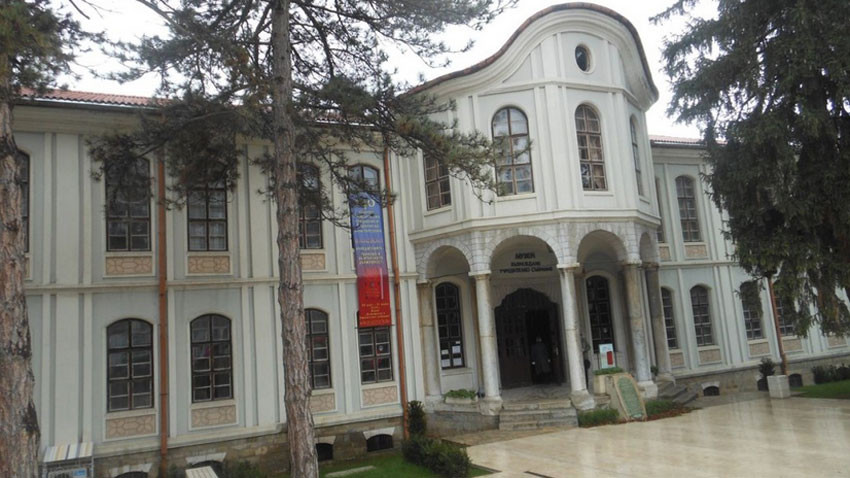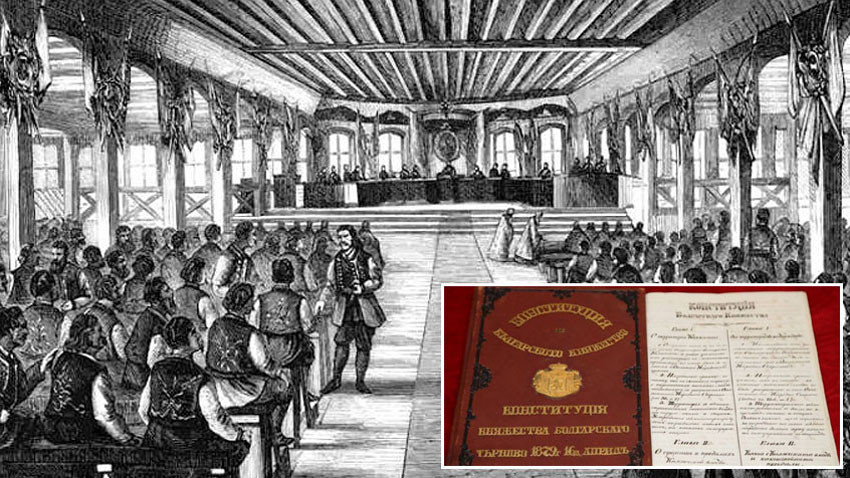On April 16, 2022 Bulgaria marks the 143rd anniversary since the adoption of the first Constitution – the Tarnovo Constitution. The document endorsed the democratic values of the Bulgarian people and laid the foundations of Bulgaria’s Parliamentary democracy. The Tarnovo Constitution was adopted by the Constituent National Assembly held in the town of Veliko Tarnovo as part of the establishment of the Principality of Bulgaria. The Constituent National Assembly consisted of 229 members.

According to historians, the Tarnovo Constitution was among the most democratic and progressive constitutions of its time. “The prescripts of the Tarnovo Constitution give us freedom to this day – freedom of the press, freedom of rallies, meetings and demonstrations, personal freedom, freedom for everyone who lives in Bulgaria”, politician Mihail Mkov, who served as National Assembly President between 2013 and 2014 once said.
The Constituent Assembly was convened by the Russian Imperial Commissioner in Bulgaria Prince Dondukov-Korsakov.

The other main issue on the agenda of the Constituent Assembly was the choice of the new capital city. Renowned historian Professor Marin Drinov was the man who proposed that Sofia should become the new capital city of the country. With one decisive vote more, the majority of members of the Assembly chose Sofia as the most important Bulgarian city- because of its central geographic location from the perspective of National Unification, since it was considered that separation from Macedonia and East Rumelia was only temporary.
Six years later, the construction of the National Assembly building began in central Sofia.
The Tarnovo Constitution was in effect until December 6, 1947. Two amendments to Bulgaria’s Constitution were adopted during the totalitarian regime. In 1991, the Grand National Assembly adopted the new Bulgarian Constitution. April 16 is the Day of Bulgarian Constitution. This day has been celebrated since 1991 at the initiative of the Union of Bulgarian Jurists.
Editing by: Vesela Krasteva
English version: Kostadin Atanasov
Photos: archive
Palm Sunday, Tsvetnitsa in Bulgarian (the word comes from tsvete , flower) is a Christian holiday loved and looked forward to by many, commemorating the Jesus Christ’s triumphal entry into Jerusalem. It is a moveable feast, always falling on..
Sunday after Mesni Zagovezni or Meat Shrovetide is the last day on which everyone who decides to follow the Great Lent according to the Orthodox calendar can eat dairy products, fish and eggs. Therefore, on Cheesefare Sunday before..
Diko Iliev- composer, conductor, a sui generis talent, a unique phenomenon in Bulgarian culture - authored dozens of marches, waltzes, horo chain dances, ruchenitsi and brass band music . For decades, Diko Iliev’s Dunavsko Horo has been..

+359 2 9336 661
